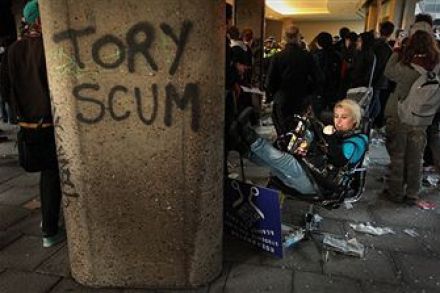A considerable achievement
This morning’s welfare event was one of the great “Who’da thunk it?” moments of this government so far. Here we had the Lib Dem leader providing backing vocals for a former Tory leader who has not only become a minister, but who is implementing an agenda that only a few months ago was little more than an idea in a think-tank report. Reviewing that Centre for Social Justice report for Coffee House at the time, I said it deserved to influence welfare policy for years to come. Now, it looks as though it will do just that. The immensity of Iain Duncan Smith’s achievement should not be underestimated. No doubt,


















